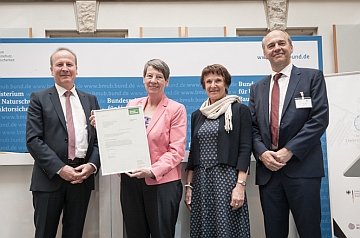Says Friedrich Barth, Managing Director of ISC3: “Chemistry is facing the biggest challenge in its history: Basically, it has to reinvent itself in order to progress towards the circular economy. This implies new business opportunities, new jobs, and the UN Sustainable Development Goals can be reached everywhere. The ISC3 is set to shape this transformation in cooperation with all stakeholders.” ISC3 is an independent international institution. It manages a knowledge platform and a network of experts, offers training and support for implementation especially for developing countries, carries out innovation scouting activities to discover new technologies, processes and business models. It is a partner for industry and politics as well as for the civil society and research and connects different stakeholders in order to jointly develop new solutions for climate protection, energy generation, mobility and food supply. The ISC3 is headquartered in Bonn and supported by the Deutsche Gesellschaft für Internationale Zusammenarbeit (GIZ) GmbH. It is planned to install a scientific center, the “ISC3 Research Hub“, at Leuphana Universität in Lüneburg, as well as a center for innovation “ISC3 Innovation Hub“, at DECHEMA in Frankfurt.
During the conference, ISCnet will also be introduced as the global network for all stakeholders in sustainable chemistry. Sustainable Chemistry aims to establish a new systematic conceptualization based on cycles and focusing on the entire life cycle of products and processes. It evaluates the use of environmentally and socially friendly alternatives and supports economic innovation. Sustainable Chemistry can therefore contribute significantly to the implantation of the UN SDGs and promote the establishment of a long-term sustainable and non-polluting economy on a global scale and in developing and emerging countries.

